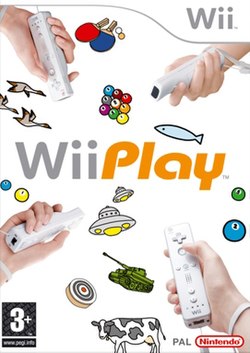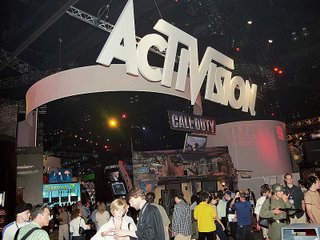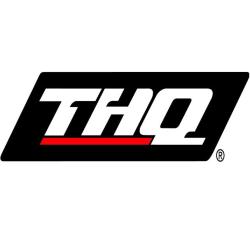With Sony’s PlayStation 3 and Nintendo’s Wii debuting in less than a month, game industry folk are prepping for a holiday season that is shaping up to be the biggest in years. For game publishers, the next two holiday seasons will be the time to make some serious hay.
New consoles mean brand new games, and Santa Monica, California-based publishing giant Activision will be ready with launch titles for the latest systems. PS3 owners can look forward to Marvel Ultimate Alliance, Call of Duty 3, and Tony Hawk’s Project 8, while Wii fans will get their own versions of the first two games, plus Tony Hawk’s Downhill Jam.
articleAd()
The company will release quarterly earnings soon, too, and analysts are raising their forecasts. Based on a stronger than expected second quarter, Wedbush Morgan Securites’ Michael Pachter bumped revenue expectations for the quarter ended September 30 to $145 million, up from $135 million.
Colin Sebastian of Lazard Capital Markets expects revenues to be slightly ahead of the firm’s $132-million estimate. Activision’s guidance for the period is $130 million, a loss of $0.13 per share.
Red Herring recently spoke with Robin Kaminsky, Activision’s executive vice president of publishing. We asked her about subjects including the new consoles, original versus licensed IP, and in-game ads.
Ms. Kaminsky joined the company in May of 2005 as head of global brand management, and in June of this year she became Activision’s executive vice president of publishing. Before joining Activision, Ms. Kaminsky spent almost eight years at PepsiCo. Excerpts from the conversation follow:
Q: When Sony’s PlayStation 3 and the Nintendo Wii debut next month, Activision will have some games ready. Why is making versions unique to specific consoles important, and what makes them special?
A: [For the Wii], games like Tony Hawk’s Downhill Jam really reach beyond the core gaming audience. We’re using the controller in a new way. In Call of Duty 3, you get to use [it] as a gun. It becomes a very living, breathing experience because of the way you control the game.
When a title is multi-platform, we’ve really tried to use what makes each platform unique. Call of Duty 3 on the PS3 and Xbox 360 is very much the next-generation of what we did with Call of Duty 2. On those platforms you can present an experience that’s much more lifelike. Call of Duty 3 also has a robust multiplayer aspect on PS3 and 360.
How we get there is much different, but the end result is the same. As long as the platforms are successful, they will more than pay back development costs for us.
Q: Sony’s PS3 features a Blu-ray drive (50GB), while Microsoft’s Xbox 360 has a DVD drive (9GB). When will we start to see differences in the game play experience due to storage capacities—and limitations?
A: We’re Switzerland. We want every one of those first parties to be successful. We have a role in helping that [happen by] delivering great software that maximizes what each of those platforms can do.
Q: Fair enough. Activision has licensed a number of properties for use in video games. Spider Man, X-Men, and movies from Dreamworks are a few examples. How do you decide between original and licensed IP?
A: There’s a value and a place for both. The most successful titles are either licensed intellectual property or sequels. We’re looking for great IP, regardless of whether it’s original or licensed.
There’s a lot of great IP out there that’s already been built. Placing a bet on licenses or franchises is a good plan for a company… There are a lot more failures with new IP.
We’re very particular. We continue to develop and prove out new IP. You won’t see five to 10 [titles based on new IP] from us in a year, but you will see one to three.
Q: Among other things, firms like
DFC Intelligence forecast consoles comprising a smaller share of the market in the future. What do you make of the future of the industry?
A: With each successive [product cycle], the console business has grown. We have no reason to suspect that won’t happen this time. The console business will grow, but other parts of gaming will grow too.
Gaming is a major form of entertainment now [and] no longer a niche product. If Nintendo, Microsoft, and Sony are successful in what they say they’re going to do, the gaming pool is going to become much larger.
Q: What’s the future of in-game ads? They’re a hot topic lately.
A: They are an incremental revenue source in games. Our learning demonstrated that it actually enhances the gaming experience [when done] correctly. We think there’s enormous opportunity. Our strategy is brand partnerships and greater brand recognition.
The most powerful way is true hard-coded integration that engages the brands somehow. An example: use a phone partner [like Motorola] to make calls, or include a Jeep in Tony Hawk.
Q: In Electronic Arts’ boxing title Fight Night Round 3, for example, players can unlock a Burger King character. Many gamers want to fight him—something you currently can’t do. How do you see interaction with in-game brands evolving?
A: There are brands that have far more tolerance for what you’re describing. It’s all going to be about matching up [games and brands].
Wireless phone carriers, car companies, we’re starting to see beverage companies… Brand partners will become more savvy. What Burger King is doing is likely to change the fast food landscape. It happens with any new media format. A few categories get involved quickly.
Q: The Entertainment Software Rating Board oversees and rates games, but titles like Grand Theft Auto: San Andreas (from Take-Two Interactive) have spurred government interest in game regulation. What do you think about what’s going on?
A: I don’t want the government to tell me what games my kids can play. There’s a very specific rating system in games that’s far more limited and adhered to than rating systems in other media. We market and only test consumers that meet our rating criteria. This industry holds itself to a higher standard than any other form of entertainment I can think of.
Q: You worked at Pepsi—and before that Coke—for some time before moving to Activision. What makes the gaming industry unique?
A: It’s [producing] both entertainment and a good that’s being sold. The entertainment we deliver has a many-hour experience. The thing that makes it most exciting is the fact that it’s an industry that practically reinvents itself every year. It’s not art for art’s sake… It’s an art form that’s also a business.











